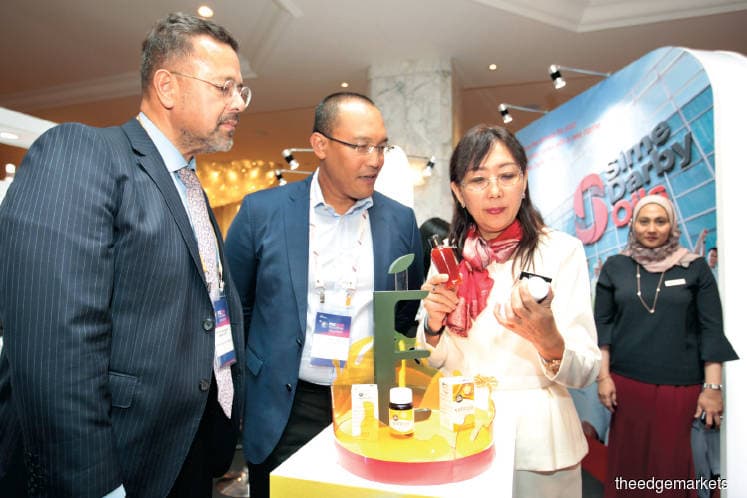
This article first appeared in The Edge Financial Daily on March 6, 2019
KUALA LUMPUR: The primary industries ministry will submit a proposal to the cabinet later this month to cap Malaysia’s total planted area for oil palm at 6.5 million hectares by 2023, in a move to dispel the claim that the expansion of oil palm plantations has led to deforestation.
Primary Industries Minister Teresa Kok said that as at 2018, the total planted area stood at 5.8 million hectares, with more than 19.5 million tonnes of crude palm oil produced.
“Oil palm plantations have been accused [of] causing deforestation. That is why my ministry has come up with the position to cap the expansion of our oil palm plantations, [and focus on] improving seedlings and yields in our planting areas.
“There are some planted areas that are not captured by the Malaysian Palm Oil Board or the state government. We will need to give some room for [manoeuvring] within these few years but we want to cap it, and we have to work with state governments to do that,” Kok said at the 2019 Palm & Lauric Oils Price Outlook Conference and Exhibition yesterday.
She said this proposal is in addition to another one to be presented to the cabinet calling for the opening up of oil palm plantation maps in Malaysia to enhance transparency of planted areas.
“We need to be transparent … We hope the cabinet will approve this so that we can make our oil palm plantation map available to public, non-governmental organisations, or whoever is interested, to know the areas of oil palm plantation in Malaysia,” Kok said.
“If we don’t open up these maps, other organisations will do it for us. And we won’t know if those are forest or plantation areas,” she added.
Kok said the ministry has also written letters to the chief ministers of Sabah and Sarawak, requesting land for the replanting of forestry trees in support of forest restoration, as Malaysia has been accused of “killing wildlife” for oil palm plantations.
“We also want to encourage the oil palm players to work with us to plant more forest trees, especially in Borneo,” she said.
Kok also said that the government’s expansion of the B7 biodiesel programme for the transport sector to B10 from Feb 1, and the introduction of the B7 biodiesel for the industrial sector from July 1, are expected to mop up 761,000 tonnes of palm oil annually, and thereby reducing stockpiles.
“This move is also hoped to increase the price of palm oil, which suffered a reduction in 2018 as crude palm oil averaged at RM2,200 per tonne,” she said.